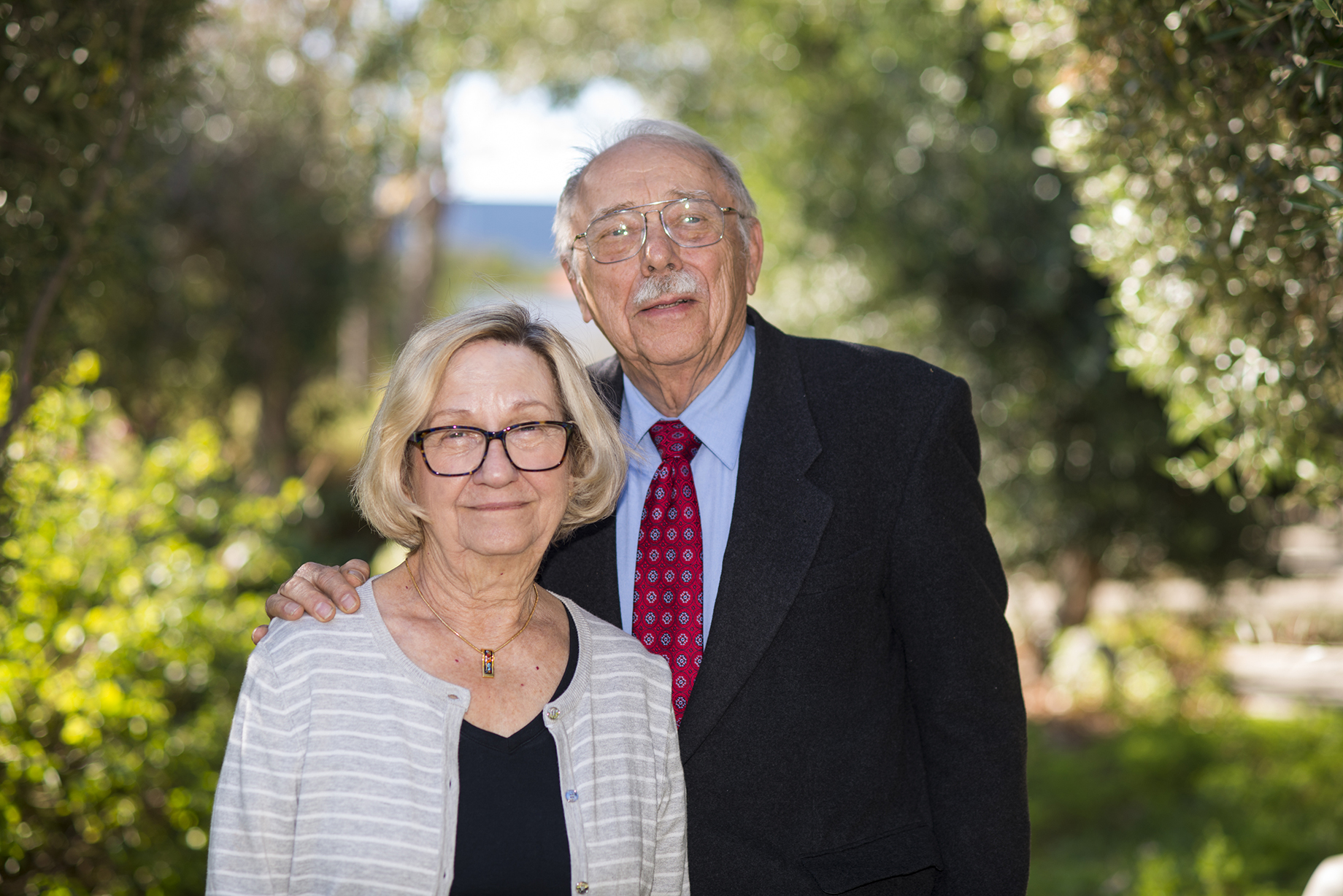CSUN Alumna Jackie Eckberg and Husband Ted Find Financial Answers in a Charitable Gift Annuity
When California State University, Northridge alumna Jackie Eckberg ‘88 (History) and her husband Ted received stock as a gift from Ted’s father, they weren’t sure what to do with it. The stock was old enough to be issued on paper. “My father worked for the phone company from 1932 until he retired,” he said. “A discount stock program for employees started in about the early 1940s, and he just let it roll over, not bothering to take out the dividends.” The calculations and paperwork required to bring the stock up to date in value — and the capital gains taxes the Eckbergs would face — kept them from acting for a long time.
CSUN is a special place to the Eckberg family, as Jackie, her two daughters and Ted’s cousin are all Matadors. Luckily for Jackie and Ted, a recent return visit to campus by Jackie after a long absence yielded a solution to their stock problem: Converting the stock into a charitable gift annuity (CGA) would not only ease their financial burden, but also help CSUN continue its mission of student success. The Eckberg’s CGA will benefit the College of Social and Behavioral Sciences to fund the future Jackie Eckberg History Scholarship Endowment.
A CGA is a contract in which a person transfers an asset (cash or appreciated assets, such as stock) to the annuity, and in exchange the university agrees to make fixed payments for life to that person, that person and a loved one, or another person. The older the recipient of the payment, the higher the payout rate.
“A fixed amount does have its plusses and minuses, but at least you can lay a floor under it, so to speak,” said Ted, a retired ear, nose and throat physician. “This way, you have a regular cash flow at decent interest rates — there are no savings accounts that are paying anything to speak of in interest.”
There are great tax advantages to CGAs as well. Annuitants can take an immediate tax deduction on the amount that will eventually be received as the gift by the university, and they can bypass a considerable amount of capital gains tax on the appreciated securities. In addition, a portion of the fixed income received can be tax free.
It had been a long time since Jackie had visited CSUN after receiving her degree. “When I finally got here and saw the growth of the campus, it was really impressive,” she said. “When I started here, our children had grown up, and I had always liked school. I took a couple of history classes at Valley College and found it was a different type of thinking — it was kind of a big step to go from my original degree in math, where you follow the formulas. I liked the classes, and so, with much trepidation, I thought it was time to make the next jump up. CSUN was right near home, and I found that I loved it — the teachers were really interested in their students and spent time mentoring them.”
Jackie remembers taking a class trip to China with history professor Joseph Chen, where she discovered she wasn’t the only student to return to college later in life. “There were two students who were 80 years old — Jaz and Malcom,” she said. “They had been in the Peace Corps and could only reach so far in the organization without getting a degree. So, they came back to Northridge and were taking classes.”
The Eckbergs are happy with their choice of a CGA, and doing it with CSUN — in fact, they now hold a second CGA through the university. “Making the gifts were a pretty straightforward thing,” said Ted. “The paperwork was all taken care of for us, and the money is where we would like it to go.”
“It’s a teaching institution, it’s here in the Valley and it serves a lot of kids,” added Jackie. “Ted and I originally went to college at a land grant university in Wisconsin, which meant that tuitions really were kept low — but that’s not so true anymore. Young people, and not-so-young people, need to have the advantage of a university education to become part of an educated population. That’s a good thing.”


 experience
experience